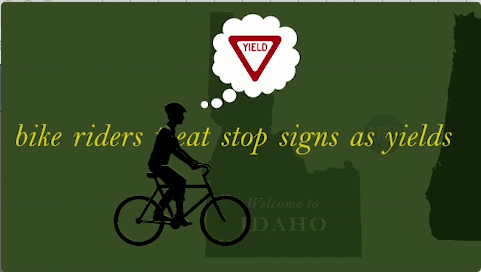CA Senate Transportation Considers Bicycle Safety Stop
For Immediate Release: 6/25/21
Contact:
Dave Snyder, 916-251-9433, dave@calbike.org
Jared Sanchez, 714-262-0921, jared@calbike.org
CA Senate Transportation Considers Bicycle Safety Stop on Tuesday, June 29
SACRAMENTO – The Bicycle Safety Stop Bill (AB 122, Boerner Horvath, Friedman, Ting) will be heard in the California Senate Transportation Committee on Tuesday, June 29, 2021.
The bill will replace the requirement that people on bikes stop at stop signs with a requirement to yield and slow and stop if necessary for safety, including to yield the right of way to pedestrians. More than 75 organizations across the state signed a letter in support of the bill. The California Bicycle Coalition created a video that explains how bicycle safety stops work in the real world. The bicycle stop-as-yield is proven to increase safety for people on bikes.
“The Bicycle Safety Stop Bill doesn’t change existing right-of-way laws. Instead, AB 122 reforms the rules of the road to accommodate the safe and logical bike riding that people are already doing. It also removes a pretext for police to harass Black Californians,” said Dave Snyder, Executive Director of CalBike.
“To cut down on car emissions, promote healthy living, and improve equity, we need neighborhoods that encourage safe bicycle riding,” said Assemblymember Tasha Boerner Horvath, the bill’s original author. “We know from the example of other states that when riders are allowed to yield at stop signs, they choose safer streets and will spend less time in dangerous intersections. It’s time for California to live up to its values and start encouraging — not penalizing — smart riding in our state.”
In April, the California Assembly voted 53 to 11 in favor of the Bicycle Safety Stop Bill.
If AB 122 becomes law, California will join the list of states that have implemented the safety stop: Idaho, Delaware, Oregon, Washington, Colorado, Delaware, Arkansas, Utah, and North Dakota. None of those states has reported any safety problems with the new rule. A recent study in Delaware found that collisions involving bicycles at intersections decreased by 23% since the safety stop became legal.
Unnecessary laws that are difficult to follow pose a risk of traffic stops with tragic endings for people riding bikes, especially Black people.





